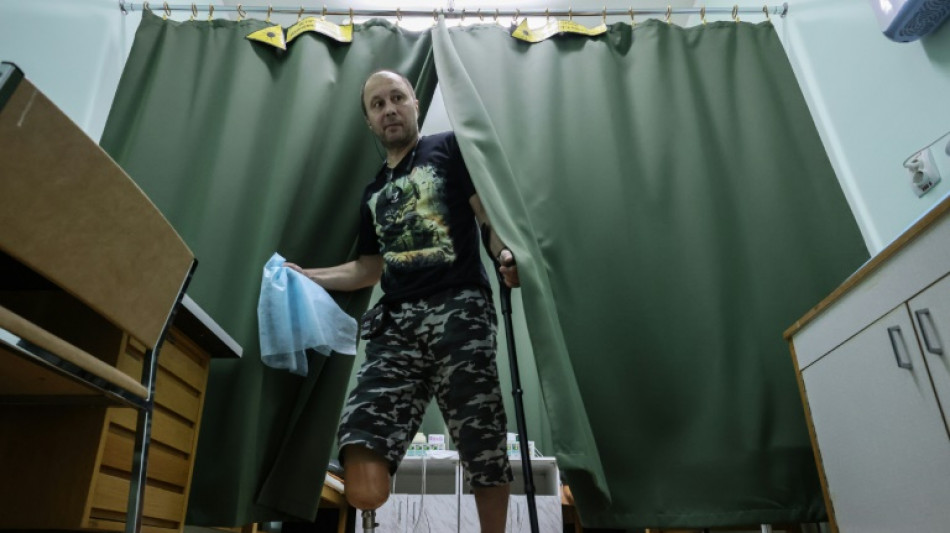

Rehab centre for Russian veterans from Ukraine fills up
"Ded", a Russian veteran of Moscow's offensive against Ukraine, still limps on his new prosthetic leg after the amputation.
But thanks to the care he is receiving at a rehabilitation centre near Moscow, the 53-year-old is starting to walk again.
The man, who goes by his military nickname meaning "Grandfather", said his leg was blown off when he stepped on a mine -- his fourth injury in the conflict.
"I've lost count of all the concussions. It's like having a runny nose," he told AFP at the Ruza restorative therapy centre 80 kilometres (50 miles) west of Moscow.
"After a week of treatment here, I started to walk again," said the man, who fought in a Russian private paramilitary unit, praising the "fast and effective help".
Like him, around 30 people wounded in Ukraine are receiving physical and mental therapy at the state-funded centre.
Russia's offensive on Ukraine, which started in February 2022, has killed thousands of people on both sides, according to observers.
The centre, which treats paramilitary veterans, dates back to the Soviet era when it was used for the Communist Party elite.
It was then transformed into a rehabilitation centre for veterans of the Soviet invasion of Afghanistan (1979-1989).
Since the 1990s, veterans of the two wars in Chechnya have also been treated there.
The centre offers physiotherapy, hydrotherapy, massages and psychologists.
There are also prayer rooms and, in the evenings, the veterans living at the centre can choose between dancing, singing karaoke or watching patriotic films.
The centre is a showpiece that has been visited by other foreign media.
- 'Re-discover the joy of living' -
Another veteran, who goes by the nickname "Scorpaena" -- a fish with poisonous spines -- said he sleeps better at the centre.
Before, he said, "I used to wake up every hour to check that everything was OK" -- as he did during his mission in Ukraine.
"I couldn't sleep for six hours at a time," said the combatant, who is suffering the consequences of a traumatic shock.
Yury Pogorelov, head of the centre's prosthetic workshop, said most amputations occurred as a result of mine blast injuries.
"Most often, they are amputations of the tibia, from the leg to the hip, a double amputation of the legs, and more rarely of the arms," he told AFP.
Rehabilitation centres like the one in Ruza provide a second stage of care for amputees.
Doctors say they are expecting an influx of patients once the conflict is over.
Alexander Pogorelov, a physiotherapist, said patients meet older veterans of the wars in Afghanistan and Chechnya "and they see that life goes on, even without legs or arms".
"They re-discover the joy of living," he said.
"Everyone has their pain and their memories. But between us we don't talk about the war. If someone asks me questions, I say: 'If you're interested, go and see for yourself what's going on over there,'" said "Ded".
"We're here for treatment and rest," he said.
- 'Life in peacetime' -
Chief doctor Tsyren Tsyrenov said centres like Ruza "are needed in every region".
He said several hundred veterans had been treated there since the offensive began.
Many of the patients worry about how to find a job when they return to civilian life.
Unlike regular soldiers, Russians who fought in Ukraine as part of private paramilitary groups at the start of the offensive in 2022 and 2023 complain that they receive no financial assistance.
"For health reasons, I can't find a permanent job. I do odd jobs," said "Scorpaena".
"I have no choice. The war will end sooner or later. You have to get used to life in peacetime," he said.
"Our lads will soon be starting to come home and the numbers of those needing rehabilitation will increase. We'll probably have to open new centres like this one."
O.Leclercq--JdB



